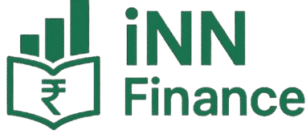At iNN Finance, we believe financial confidence begins with one simple step: having emergency savings. Whether you’re salaried or self-employed, an emergency fund is like a personal insurance policy — one that you control.
Most people wait for a crisis to realize its importance. A medical bill, a major home repair, or a sudden job loss can create a huge mess if you’re not prepared. Based on our research, keeping even ₹1.5 to ₹2 lakh aside can make a big difference in how financially secure you feel.
Where should you keep this money?
It’s important to store your emergency savings where you can easily access them, without taking risks. Good options include:
- A regular savings or current account
- Liquid mutual funds
- Money market accounts or sweep-in FDs
If your monthly expenses are around ₹30,000 to ₹40,000, then having ₹90,000 to ₹2.4 lakh in a safe, quick-access account should be your starting point.
For those with a longer-term plan, some choose to keep part of their backup funds in taxable mutual funds or long-term retirement accounts like PPF, though you should be cautious, since these may have lock-in periods or penalties for early withdrawal.
Managing Multiple Financial Goals
Most working Indians today aren’t just saving for one thing — you’re probably planning for a house, a child’s education, maybe even early retirement.
So, let’s see how you manage them.
Use the 50/30/20 rule:
- 50% of the income is used for important things
- 30% of income is used for necessary things
- And 20% of the income is used for savings
It’s said your monthly income is ₹50,000:
- ₹25,000 covers your needs
- ₹15,000 goes to lifestyle
- ₹10,000 can be saved or used to pay off debt
Want to make sure you stick to this? Automate your savings. Set up a SIP or recurring transfer right after your salary hits your account. If it’s automatic, you won’t even miss the money.
Get Ahead by Tackling Debt Smartly
Debt is normal. But high-interest debt — like credit cards or short-term loans — can silently kill your savings.
The first step is simple: list all your debts, along with interest rates and EMIs. Then pick a strategy:
- Snowball method: Pay off the smallest loan first to feel a quick win.
- Avalanche method: Pay off the loan which have highest interest rate.
Also, if you have a home loan or education loan with a relatively low interest rate, compare it to your expected return from investing before deciding to prepay.
Taxes Matter — Plan for Them Early
Don’t let taxes eat into your growth. Use tax-saving tools smartly, and don’t wait until March 31st to start planning.
Here are some proven ways to reduce tax:
- Invest in ELSS mutual funds (under Section 80C)
- Max out your PPF or NPS contributions
- Consider tax-free bonds if you’re conservative.
Note – Managing tax is one-year planning, not a last-minute thing.
Keep yourself calm during market ups and downs.
As we know, sometimes Markets move violently, and in such situations, lots of people get nervous. However, there’s no need for panic; just do proper analysis and use your money wisely.
Some tips that help you:
- Diversify your investment in multiple assets such as equity, debt, gold, global funds, etc.
- Always choose simple, low-cost options, such as index funds or ETFs
- Rebalance your portfolio: Check your balance every year
- Suppose that if any asset class grows too much, your plan gets off track. Rebalancing helps you to stay with your plans and manage your goals.
Conclusion
It’s not easy to handle savings, investments, taxes, everything. Sometimes it gets confusing, so it’s ok to seek help from an expert or consult them for proper advice.
At iNN Finance, our aim is to simplify finance for the people, whether you’re a young professional, a retired one, or an entrepreneur. We want to educate everyone about finance.
